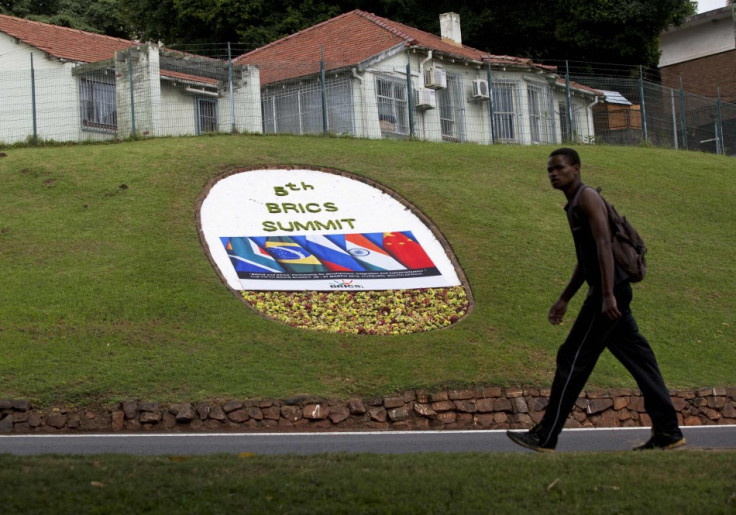BRICS Nations Set to Form New Bank to Replace IMF and World Bank
The fifth BRICS Summit is due to start in South Africa's Durban

The BRICS nations are set to approve the establishment of a new development bank at their fifth annual summit, which is due to start in the eastern South African city of Durban.
The proposed BRICS bank will help tackle under-development and currency volatility in the member countries. It is also supposed to replace the roles of the World Bank and the International Monetary Fund (IMF) in the member countries.
The countries will also discuss pooling foreign-currency reserves to ward off balance of payments or currency crises. They have combined foreign-currency reserves of $4.4tn (£2.9tn, €3.4tn).
The group of emerging powers had been critical of the practice of selecting the presidents of the World Bank and the IMF from the US and Europe, respectively, and had sought for an overhaul of management of the global lenders.
"The deepest rationale for the BRICS is almost certainly the creation of new Bretton Woods-type institutions that are inclined toward the developing world," Bloomberg quoted Martyn Davies, chief executive officer of Johannesburg-based Frontier Advisory, as saying.
"There's a shift in power from the traditional to the emerging world. There is a lot of geo-political concern about this shift in the western world."
The BRICS nations - Brazil, Russia, India, China and South Africa - represent 25.9 percent of the world's land mass, 43 percent of the population and 17 percent of global trade. The group accounts for 25 percent of the world's gross domestic product (GDP) in terms of purchasing power parity.
Coined by Goldman Sachs Asset Management Chairman Jim O'Neill in 2011, the term 'BRIC' represented the four emerging economies that could equal the US economy in combined output by 2010. The four nations held their first summit four years ago and invited South Africa to share the rank in December 2010.
Following a number of deals within the group, trade between the member nations surged to $282bn in 2012 from $27bn in 2002. The trade size is expected to reach $500bn by 2015, according to data from Brazil's government.
While the formation of the BRICS bank would be a major political achievement by the group, there is still no agreement on its funding and operations. The nations would agree on the formation of the bank in principle and decide on the contribution from each country to it later.
China wanted the development bank should start with a $100bn corpus, but India is favouring a rather modest amount of $50bn, given the financial health of BRICS countries.
Russian President Vladimir Putin's envoy to Africa, Mikhail Margelov, earlier suggested an initial contribution of $10bn in an interview in Moscow.
© Copyright IBTimes 2024. All rights reserved.






